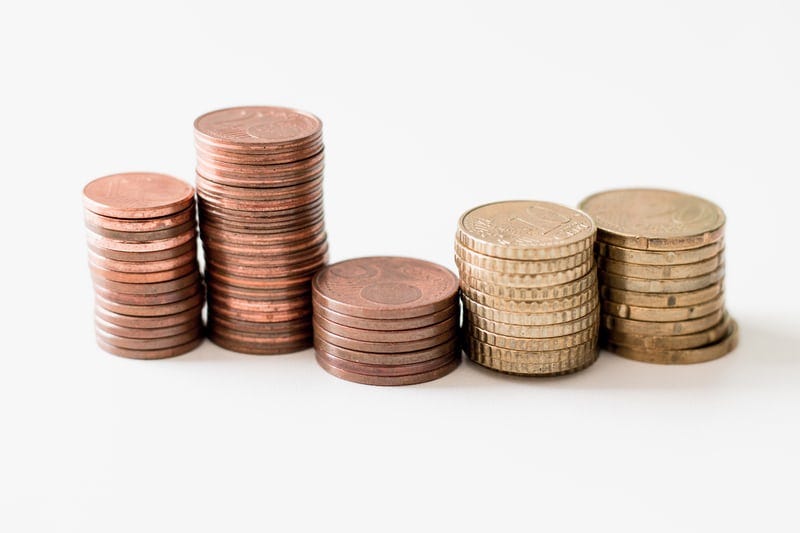We all know when things are free, we are the product.
Regardless, we feel good about using free sites and platforms because we assume they are somehow saving us time and money yet those are the places you want to watch out for the most.
I became heavily involved with my finances when my father passed a few years ago. I believe things happen for you not to you and after his passing, it led my mother and I to evaluate our financial circumstance and situation.
The worst moments always teach the most and in my case, I would’ve learned personal finance too late in life by getting in trouble swimming in possible credit card, student debt and adopting a frivolous spending habit.
There’s always a reason something happens. We don’t know why and we think the world is against us yet life has a weird way of working out in the end.
Bought or Sold
When my father passed, the first thing we did was increase our passive income streams from 7 to 10. We got into real estate, set up a trust, portfolio split, short and long term goals, learning about insurance to an appropriate cash load, learned about the power of ETFs and our risk tolerance adjustments and most importantly, realized how easily it is to get scammed especially as women.
Pro tip for the ladies: If you actually want a decent deal on a car and not let anyone rip you off with anything in life…
A: Bring a man; even if he has no idea what he’s taking about and knows less, the salesperson still acts differently and starts working in your favor
B: Work with a female sales rep instead or with no one!
Personal finance is one of the most vital skills one needs to know of in their life to achieve their goals and live a financially free life. Without money, there’s nothing. You don’t want it to overwhelm you just use it to your advantage. Unfortunately personal finance is also one of the few skills that ISN’T taught in the education system.
How about before we dissect a frog in middle school or practice derivates in our final year of HS, we learn how to plan for our future and save ourselves instead?
Implementing money based curriculum isn’t just an incentive for graduates to grow their wealth and become successful in their own means but institutions benefit tremendously as well.
The wealthier graduates are, the higher endowment donations, grants and universities’ favorite: boost in prestige and title they will get. It’s a win-win for both parties yet still not implemented into the age old system of education. The healthcare system also needs a revamp. BIG TIME.
Why does a patient have to check-in for an hour and get a checkup for a medical ailment they already know they have?
The education and health care industries disregard our precious time.

Tricky Mess
Finance is unlike any other skillset because not only is it not mandatory in school, except for majors, it’s extremely personalized, segregated, causes the most anxiety for households and a majority of Americans have and don’t nowhere to start.
The subject is complex from the start which leads Americans to start evaluating their finances the wrong way which typically include:
-Hiring an advisor not a fiduciary or solely invested in a retail trading app
-Watching Yahoo Finance, Bloomberg News or CNBC for stock pick recommendations
-Solely on Robinhood or any other popular mainstream retail trading platform
-Is convinced that saving more and earning more is the way to wealth
-Focused on W2 income only
These are the things you DON’T want to follow yet are advertised all over the place and pure traps.
But the best dilemma of them all is portraying this:
“Don’t spend just save”
What does that even mean?
The personal finance industry is a billion dollar industry for a reason.
In a few years, it will tie the ranks with the diet space of a few trillion dollars.
In school we are taught to learn through:
-Textbooks
-Books
-Any form of literature
-Meeting others
-Going to events and curating experiences
-Watching videos
And finance is no different.
There’s a ton of information out there that’s free but who can you really trust?
Just like social media.
Can you really trust the billion dollar behemoths aren’t selling your data to 3rd parties or that your friend on her vacation is really having a blast when she just told you she was going through an at-home crisis?
Instead of investing your time and money in the glossy overrated hyped up topics of saving and spending, personal finance should teach:
-Skepticism
-Trust
-Practicality
-Realism
-Action
These are the traits consumers need to be aware of. Just because you purchased “Rich Dad Poor Dad” doesn’t mean it will turn into an investment the next day.
You need to put it into practice through consuming less producing more.

Toss-Up
In the personal finance minimalist frugal cultural world we live in today, to achieve ultimate financial freedom we are encouraged to spend less yet still need to learn.
How is that possible?
A major part of being able to survive in the richest country in the world is by investing in yourself and taking advantage of what this great country has to offer. Education is one of the few investments that appreciates in value and can never be replaced. As college tuition rises by a few percentage points not including inflation each year, how are students NOT expected to spend money to grow?
We are told to spend less in personal finance land yet need to to know that by spending!
It’s disingenuous to teach people how to navigate what consumerism means and how to appropriately spend while simultaneously encouraging them to consume.
Cash Out
At the end of the day, personal finance is the same like any industry, maybe worse since there’s no secret formula, everyone has different circumstances and there’s an infinite amount one could earn and use.
This space uses marketing to build an audience of people who want to consume their problem yet this is all a product in itself.
So what’s the point?
Invest in tools you know have helped others. Books are great resources but remember that they can only teach you so much. Learn from those who’ve ben in your shoes. I personally learn more from a 30 min interview on Youtube than a book that takes me 2 months to finish.
Being skeptical is a trick of the trade. Consume wisely especially since everyone seems to be an expert these days.
Pick your product and be aware you are spending your time and money on it in hopes of it reaping a reward in the future. Anything personal finance related isn’t free money.
You’re still consuming so at least consume on platforms such as this one that offers free advice.
Over here you’ll always be in good trusted hands.
No paywall in sight.

